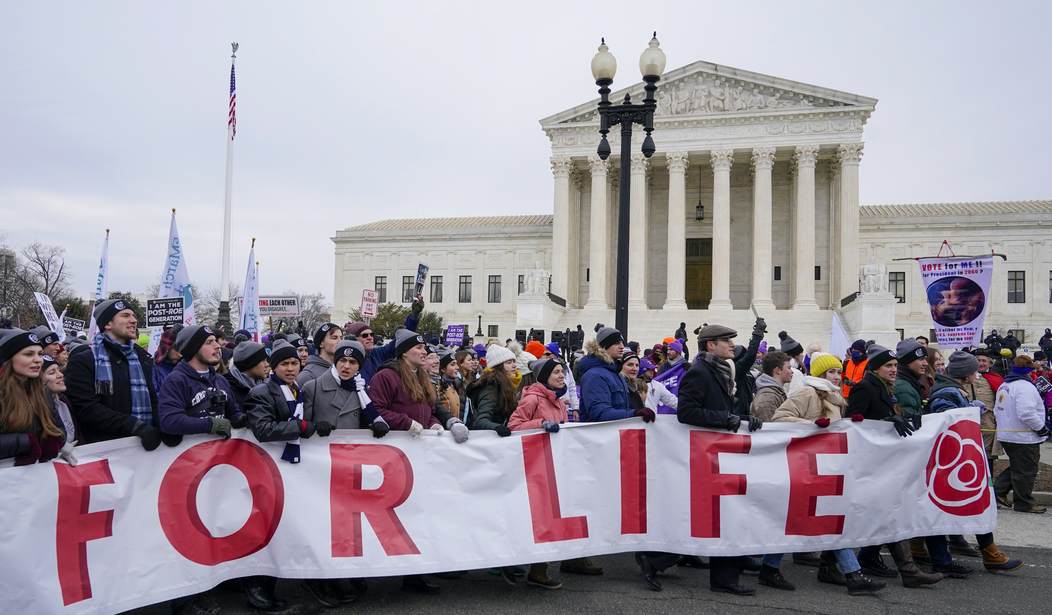Pro-abortion pundits want to believe that Democrats can maintain control of the House and Senate in the midterms. Writing for the New York Times, Blake Hounshell and Leah Askarinam argue that there is a chance that Democrats will maintain a majority in Congress. Their analysis, especially on the issue of abortion, leaves out key insights that show pro-lifers are poised for a big sweep in the midterms.
In “How Democrats Can Stop a Red Wave,” Hounshell and Askarinam suggest that abortion can win votes for Democrats. In recent years it has not, and data suggest it will not. The authors look at the Virginia gubernatorial race in which Glenn Youngkin won handily. His opponent, Terry McAuliffe “spent millions of dollars portraying Youngkin as an extremist on abortion.” McAuliffe was convinced, as were many Democrats, that bombarding voters with ads about Youngkin’s opposition to abortion would win him votes.
It turns out, when Democrats talk about abortion, they lose votes. Youngkin did not even embrace a strong pro-life stance and hardly touched on McAuliffe’s very real abortion positions. Youngkin distanced himself from the issue and tried to keep the focus on economic issues. Even with such a tepid stance, Youngkin picked up votes on the issue of abortion.
Single-issue voters like me are a substantial and highly motivated voting bloc. As much as the New York Times wants to downplay our impact on elections, we’re engaged and often determine the outcome of elections. The Times piece notes that in exit polls “just eight percent of voters said abortion mattered most to their decision, the least of five preselected topics.” This sounds like an insignificant figure, but the actual numbers tell a different story.
In an election with 3,288,327 total votes, eight percent represented roughly 263,066 single-issue voters focused on the issue of abortion. Of those, 58% voted for Youngkin and 41% for McAuliffe. Breaking down those percentages, 152,578 of those single-issue voters voted for Youngkin and 107,857 of those single-issue voters voted for McAuliffe. On the issue of abortion alone, Youngkin gained 44,721.
Recommended
To put that number into perspective, Youngkin’s margin of victory was only 63,688. This math makes clear that life is a winning issue. It’s not farfetched to speculate that if Youngkin had focused voters’ attention on McAuliffe’s pro-abortion extremism, he may have won even more votes on the issue. As Students for Life Action highlighted in a television ad campaign, McAuliffe defended pro-abortion Ralph Northam’s comments justifying infanticide. Rather than condemning the inhumane and shocking position, McAuliffe defended the Virginia governor when his remarks became a national news story. If Youngkin had brought this anti-life extremism to the attention of more Virginia voters, that may have been enough to convince even more constituents to vote Pro-Life First.
Ignoring the numbers, pro-abortion pundits remain convinced that voters show up for abortion. As seen in the example of the Virginia gubernatorial race, and consistently in polling, voters oppose limitless abortion. What is more, we know that the majority of Americans support significant limits on abortion.
All of this is news to the Democrat, who think the possibility of Roe v. Wade being reversed is a chance to win votes with pro-abortion talking points. According to the New York Times,many pro-abortion Democrats think that the cases challenging Roe offer a chance for Democrats to point out how their Republican opponents are “out of the mainstream” with their pro-life convictions. Blind to data and experience, pro-abortion political handlers still think abortion is a winning issue for Democrats. It didn’t work for McAuliffe, who thought being pro-abortion would be a “huge motivator,” especially for suburban women. Loudly calling for the legal destruction of innocent preborn human beings does not, in fact, motivate people to get to the polls in support of the pro-abortion candidate.
This holds true for national elections, too. According to data from Google Trends, the number one search inquiry related to Hillary Clinton on the day of her loss to Donald Trump in 2016 was “abortion.” It is possible that Clinton’s refusal to accept any limit on elective abortion at all, advocating for legal abortion up to birth, rightly shocked voters and contributed to her historic loss.
With the midterms approaching, GOP-candidates avoiding the abortion issue are missing out on an opportunity to win votes. Americans care about many issues, but many Americans are most concerned with the injustice of ending the lives of pre-born babies. When Republicans call attention to the extremism of so many Democrats—endorsing infanticide, calling for taxpayer funding of abortion, sending money to the abortion industry—many voters will pay attention.
Consider that Students for Life’s recent poll found that 1 in 5 Millennials and Gen Z, now almost one-third of the electorate, say that abortion motivates their vote.
Also worth noting about single-issue voters is that they are likely to stay engaged and ensure that candidates fulfill their campaign promises. When voters choose a candidate for being pro-life, they expect concrete help for mothers and babies. The red wave can win lots of support from pro-lifers if candidates commit to action in defense of life in law and in service.
Kristan Hawkins is president of Students for Life of America, with more than 1,220 groups on college, university, and high school campuses in all 50 states. Follow her @KristanHawkins or subscribe to her podcast, Explicitly Pro-Life.
























Join the conversation as a VIP Member